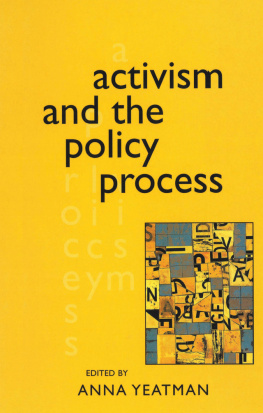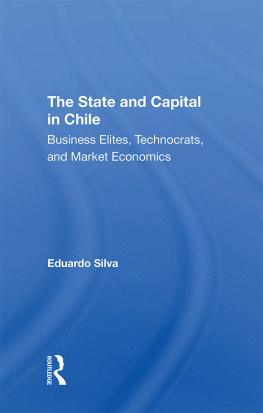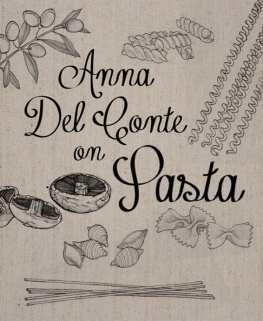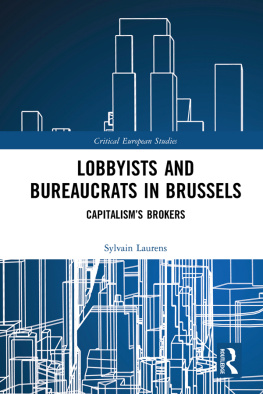FOR MY PARENTS
First published 1990 by Allen & Unwin
Published 2020 by Routledge
2 Park Square, Milton Park, Abingdon, Oxon OX14 4RN
605 Third Avenue, New York, NY 10017
Routledge is an imprint of the Taylor & Francis Group, an informa business
Anna Yeatman, 1990
All rights reserved. No part of this book may be reprinted or reproduced or utilised in any form or by any electronic, mechanical, or other means, now known or hereafter invented, including photocopying and recording, or in any information storage or retrieval system, without permission in writing from the publishers.
Notice:
Product or corporate names may be trademarks or registered trademarks, and are used only for identification and explanation without intent to infringe.
National Library of Australia
Cataloguing-in-Publication entry:
Yeatman, Anna.
Bureaucrats, technocrats, femocrats.
Bibliography.
Includes index.
ISBN 0 04 442103 6.
1. Public administrationAustralia. 2. Political
sociologyAustralia. 3. Welfare state. 4. Feminism
Australia. I. Title.
354.94
Set in 10/11 pt Sabon by Graphicraft Typesetters Ltd., Hong Kong
ISBN-13: 9780044421030 (pbk)
There are a number of people I would like to thank, although I hasten to exempt them from any responsibility for how I have used their stimulus, help or encouragement. For their inspiration to become creatively involved in development of democratic public policy in Australian society: Hugh Stretton, Jean Blackburn, Anne Deveson, Peter Wilenski, Colin Power, Bettina Cass, Denise Bradley and Beryl Radin; for their inspiration and encouragement to become involved in the complicated business of public management practices that are oriented both democratically and in the direction of good service-delivery outcomes: Bill Cossey, Gael Fraser, Cathy McMahon, Louise Denley, Meredith Smith and Lois Bryson. For introducing me into theoretical ways of thinking that have proved very fruitful for understanding some of my own ideas and ways of seeing: Ivan Szelenyi, David Levine, Judy Stacey, Terry Threadgold and Cate Poynton. For specific intellectual insight, encouragement and/or assistance: Staffan Marklund, Clare Burton, Peta Tancred-Sheriff, Sue Sheridan, John Browett, Riaz Hassan, Colin Power, Martin Painter and Lois Bryson. For their technical assistance and generous support: Sue Manser, the librarians on the Circulation Desk at Flinders University, John Iremonger; and, for her intelligent editing, Venetia Nelson.
is the revised version of an article which was published in the Australian Journal of Public Administration, 46, 1987.
This is a book of theoretical essays in political sociology and Australian public administration. They contest some of the fundamental features of mainstream structures and cultures of the Australian state, especially as it has been led in the 1980s by the Labor Party, an apolitical party with a statist orientation.
In these essays I am concerned with several themes. One is the development of the complex interventionist state. The complexity of the late-twentieth-century state in advanced capitalist societies arises from several factors. The first is the proliferation of interests and movements which make claims on the state and its power to distribute social goods and values. Their claims variously shape the agendas of public policy and the character of social programs. Because these claims involve differently positioned interests they often conflict, and these conflicts politicise the construction of policies and programs. The symbolic politics of such contests becomes critically important because it is in linguistic practices that certain claims, and not others, are valorised.
The second factor is the increasingly complex differentiation of the states activities. As the state has grown to encompass virtually every feature of the everyday lives of its subjects, it has had to enter into a vastly extended repertoire of exchanges and relationships with the different organisations of civil society: capitalist economies and households; social movements and voluntary public spheres (churches, organizations of professionals and independent communications media and cultural institutions); political parties, electoral associations and other gatekeepers of the state-civil society division; as well as disciplinary institutions such as schools, hospitals, asylums and prisons (Keane, 1988: 1920). This extended repertoire of exchanges and relationships requires of the state increasingly differentiated and specialised capacities in policy and administration. This is expressed not only in the horizontal division of state business into different departments (e.g. Department of Community Services and Health, Department of Social Security) and into different sections or programs within these departments, but in the vertical differentiation of state business into distinct levels of government: national, provincial and local. Each level becomes a distinct protagonist with its own specialised view of these relationships, and some programse.g. Home and Community Caredepend on the relatively close cooperation of all three levels, while otherse.g. the Australian Development Assistance Bureaudo not.
To the extent that the state has developed this degree of internal differentiation, and become entwined in complex ways with the agents and organisations of civil society, the states agency, or sovereignty, has become a widely dispersed field of activity. For example, this field of activity includes: the executive politics of central, national government agencies like Prime Ministers and Cabinet, the Department of Finance, and Treasury; the commercialising activities of a statutory body such as Telecom; the visits of a social worker to a mildly demented 75-year-old woman who still lives in her own home; the creative activities of local community theatre groups which depend on government subsidies; the participation of parents in the management committee of a governmentfunded childcare centre; the industrial and professional politics of public service unions; and the efforts of ethnic organisations and advocates of multiculturalism to extend government policy and the capacities of Australian employers and educational institutions to recognise overseas qualifications of individuals who have migrated to Australia.
This dispersion of activity within the borders of the states jurisdiction corresponds to the increasing permeability of these borders to global traffic (in persons and goods), global politics, and global issues. The politics and management of this degree of social complexity are not containable within the conceptions of the state that we have inherited. Just as the business of the state is no longer containable in formal legislative enactments, the simple decisionist models of the state that make it appear as the public umpire of social contests and judge of wrongdoing, or as the executive committee of the bourgeoisie, are no longer relevant.
A second and related theme I am concerned with is the proposition that we need to learn to live with a complex interventionist state because it is unlikely to go away. Learning to live with it means accepting that it is a central site of social, political, cultural and economic struggle over the distribution of social, political, cultural and economic resources. It is also a site of struggle about how top-down or bottom-up the direction of such struggles over distribution should be. Accordingly, this is a book about the politics of the state.









